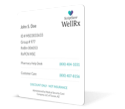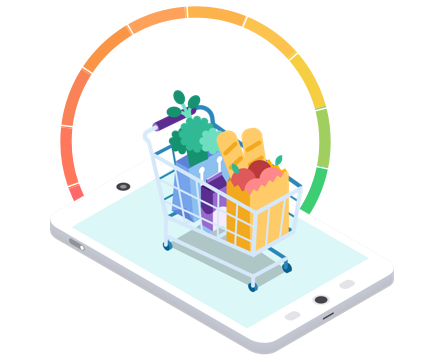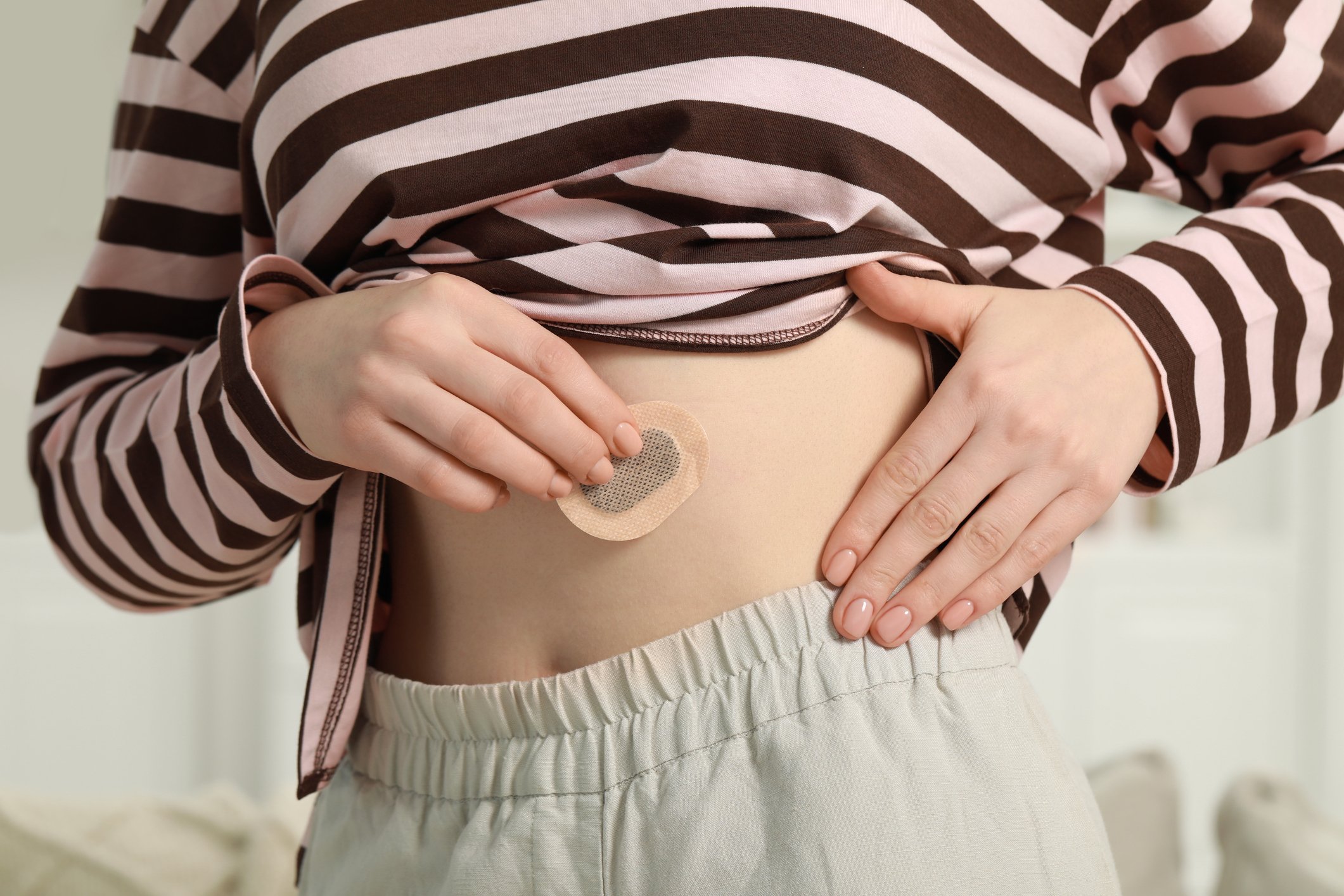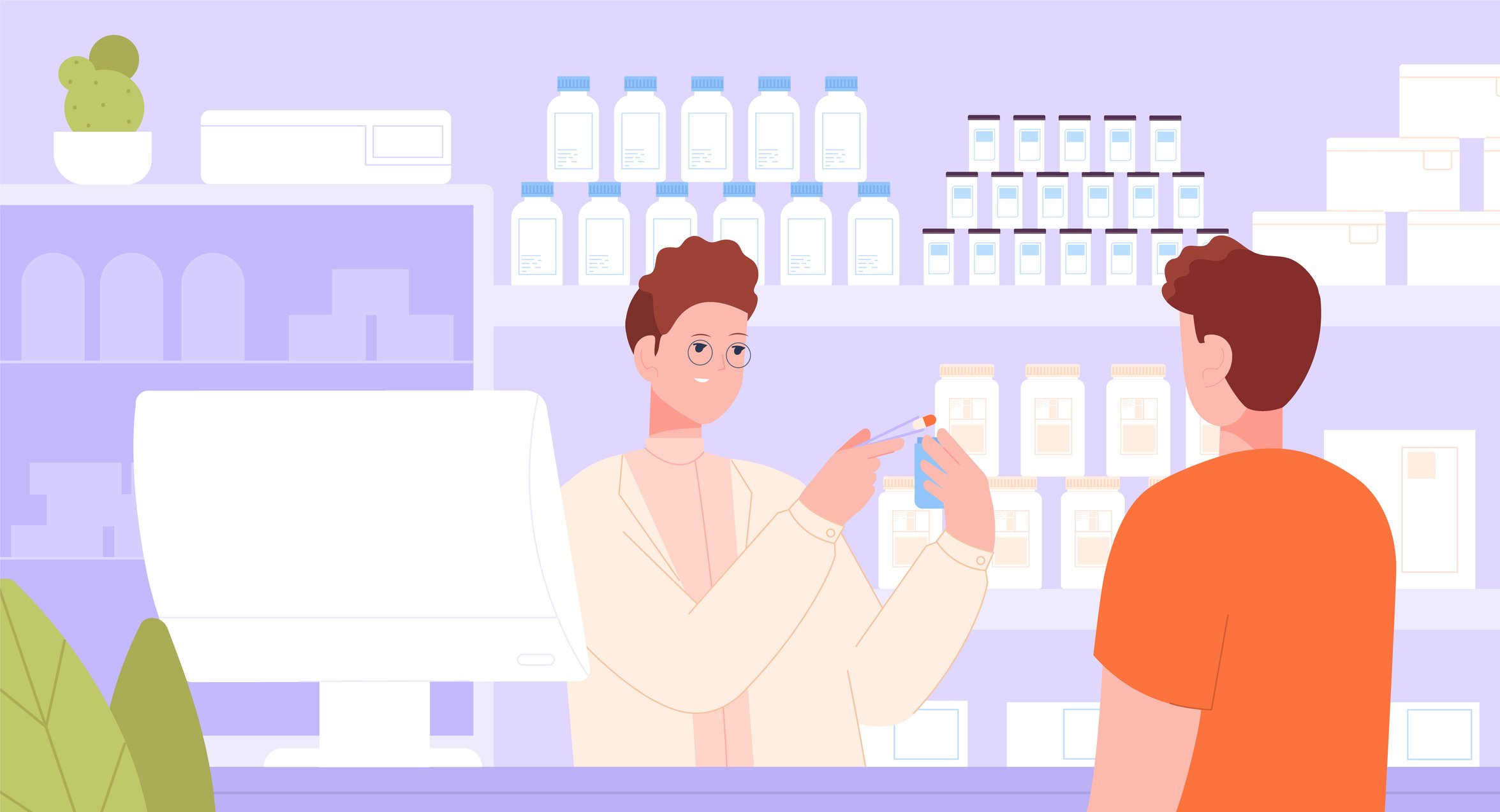What Happens When You Quit Eating Sugar?
By Karen Eisenbraun, CHNC
June 25, 2020
Prescription Drugs, Your Health & Wellness
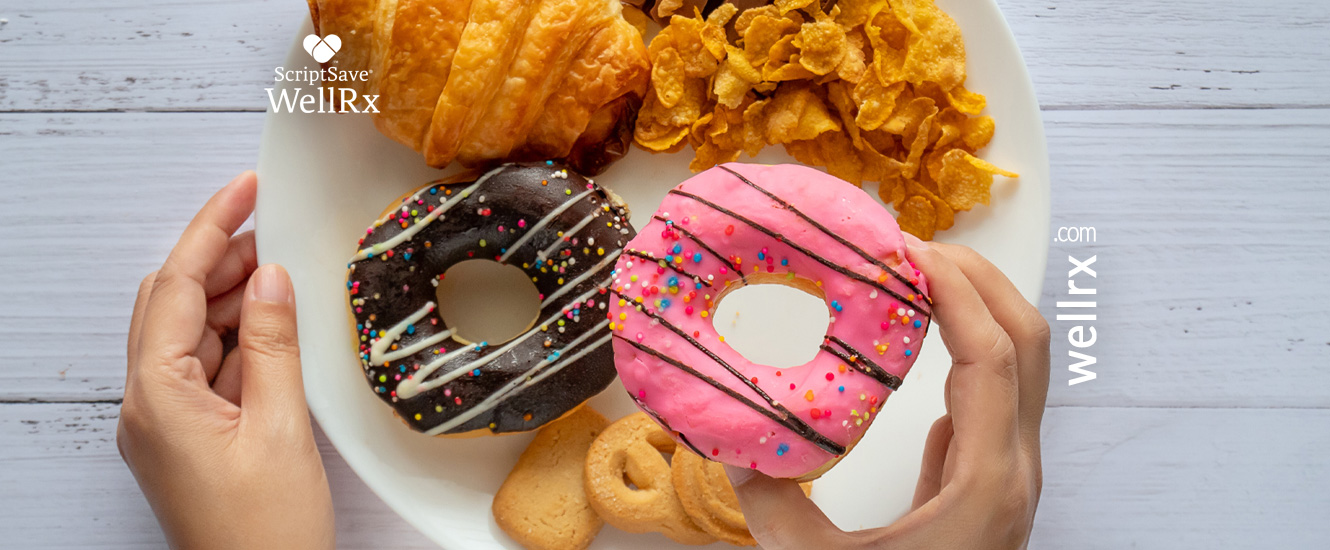
Giving up sugar is challenging but definitely worth the effort. The American Heart Association recommends limiting added sugars to no more than six teaspoons a day for women, and nine teaspoons for men. However, by some estimates, the average American consumes as much as 17 teaspoons of sugar per day. That’s the equivalent of 57 pounds of added sugar per year.
All that sugar may taste great, but it wreaks havoc on your health. Eating too much sugar is associated with insulin resistance, weight gain, high blood pressure, fatty liver disease, accelerated aging, a weakened immune system, erectile dysfunction, depression, joint pain, kidney damage, and an increased risk of heart disease and diabetes.
You might not even be aware of how much sugar you’re eating. Soft drinks, candy, and baked goods are obvious sources of sugar, but added sugar also lurks in dairy products, salad dressing, tomato sauce, and protein bars.
Continue reading to learn about the benefits of quitting sugar and how to do it.
Younger-Looking Skin
Sugar in the bloodstream attaches to amino acids found in collagen and elastin, fibers that support skin structure. This process, known as glycation, results in the formation of advanced glycation end products, which cause skin fibers to become stiff and weak. In turn, this leads to wrinkles and sagging skin. Research suggests that cutting your sugar intake can reduce these visible signs of aging.
Increased Energy
Sugar and other simple carbohydrates—like white bread and white rice—enter the bloodstream quickly and provide a quick burst of energy. You’ve probably experienced this, along with the energy crash that comes soon after. Foods that are high in protein and healthy fat, on the other hand, are digested more slowly and provide a steadier source of energy. Rather than reaching for some candy for a midafternoon boost, choose a healthier snack, such as a handful of almonds.
Weight Loss
We tend to think of fat as the culprit behind weight gain, but it’s actually sugar. Sugar and carbs are converted into glucose, which is used for energy. Excess glucose is stored in the liver as glycogen, or distributed to other parts of the body and stored as fat. When you stop eating sugar, these excess fat stores will naturally be depleted, making weight loss easier.
Reduced Inflammation
Sugar contributes to chronic inflammation, which is linked to numerous health conditions, including heart disease, cancer, diabetes, arthritis, and digestive disorders. To reduce chronic inflammation even further, swap out sugary foods for naturally anti-inflammatory foods like fresh berries, leafy greens, tomatoes, and green tea.
How to Stop Eating Sugar
Make One Change at a Time
If quitting sugar cold turkey sounds overwhelming and impossible, start by making one change, like giving up soda or candy bars. That alone is a huge accomplishment for many people! Once you’ve mastered one habit, add another. Changing your diet slowly will also help reduce the unpleasant symptoms of sugar withdrawal, which can include headaches, muscle aches, and difficulty sleeping.
Read Labels
Even seemingly healthy foods, like yogurt and tomato sauce, can be packed with added sugar. Get into the habit of reading ingredients—never assume that a food is low in sugar just because it looks healthy.
Avoid foods with added ingredients such as sucrose, glucose, maltose, fructose, high-fructose corn syrup, corn syrup solids, cane sugar, cane juice, or any of the other names for sugar.
Choose Low-Glycemic Alternatives
Foods like white bread and whole-wheat pasta fall high on the glycemic index, which measures the impact of foods on blood sugar. Choose alternatives such as zucchini noodles or spaghetti squash.
Other food substitution suggestions:
- Order a lettuce wrap or a salad for lunch instead of a sandwich.
- Instead of flavored yogurt, buy plain Greek yogurt and add fresh berries.
- Choose nonstarchy vegetables. Corn, peas, and carrots are all high on the glycemic index. Opt for leafy greens, such as spinach and kale, or cruciferous vegetables, such as broccoli and cauliflower.
Look For Low-Carb Foods
Low-carb options are everywhere these days, even for foods like bread and ice cream. These foods are often made with sugar alcohols, which do not impact blood sugar the way sugar does. But use caution: sugar alcohols can cause gastrointestinal problems for some people.
Choose Full-Fat Foods
This may be counter to all the diet advice you’ve read in the past, but many fat-free or reduced-fat foods are laden with added sugar. Plus, your body needs some fat to absorb certain vitamins and for organs to function optimally. Again, read labels—and get out of the habit of reaching for the low-fat foods.
Don’t Stress Out
It may feel depressing to think that you can never eat some of your favorite treats again, but don’t worry. You can still have a donut or a piece of cake from time to time if you really want. Chances are, however, those cravings will go away. As you become accustomed to eating less sugar, your body will no longer crave it. Just give yourself time. You’ll eventually likely find that you feel completely satisfied with a piece of dark chocolate and some fresh berries.
Karen Eisenbraun is a Certified Holistic Nutrition Consultant. She holds an English degree from Knox College and has written extensively about topics related to holistic health, clinical nutrition, and weight management.
References:
https://www.heart.org/en/healthy-living/healthy-eating/eat-smart/sugar/added-sugars
https://pubmed.ncbi.nlm.nih.gov/20620757/
https://www.health.harvard.edu/staying-healthy/understanding-acute-and-chronic-inflammation
Recommended Articles



